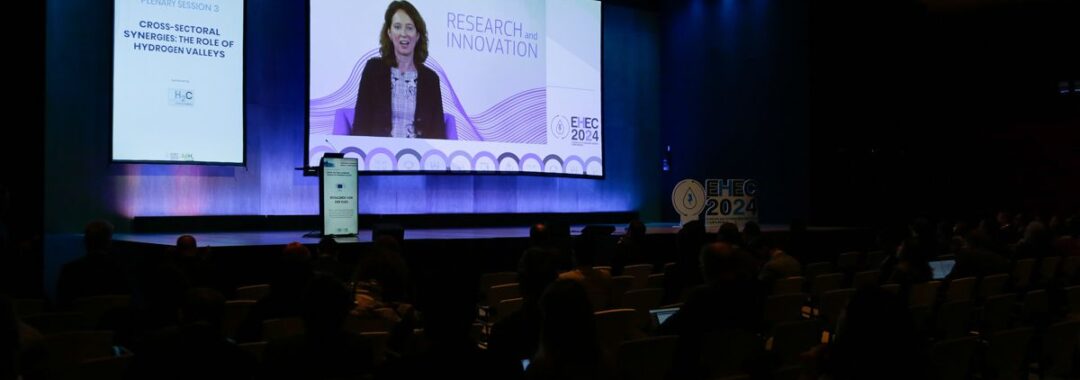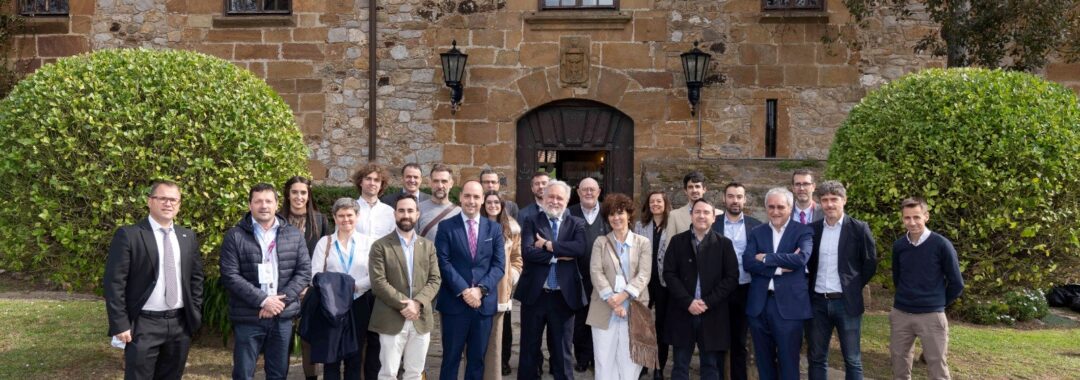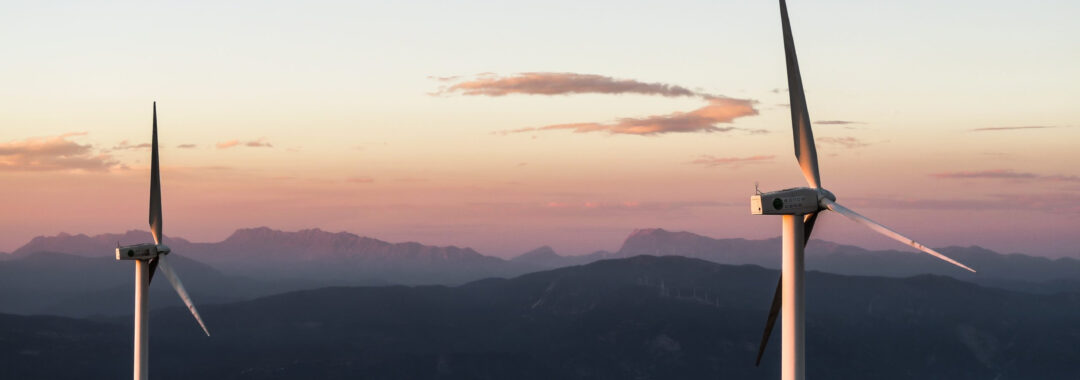Last March 7th a Plenary Session on the role of hydrogen valleys to foster cross-sectoral synergies was held in the framework of the European Hydrogen Energy Conference 2024 in Bilbao. Insightful speeches were given by the following speakers:
JOSÉ IGNACIO HORMAECHE, General Director of the Energy Cluster of the Basque Country and member of the Board of Directors of the Basque Hydrogen Corridor (BH2C).
He explained the strategy of the innovative Petronor refinery to put into operation by 2026 three electrolysers for a total of 112.5 MW of electrolysis (2.5 MW are already in operation since October 2023), as a basis and reference for the 52 projects and 73 companies that are currently part of the BH2C, and showed the main achievements and milestones of the ongoing projects. He also highlighted as success factors of the BH2C the involvement and private initiative achieved, as well as the cross-cutting activities that take place around all projects.
Furthermore, BH2C is in line with the «Net Zero Basque Industrial Supercluster» initiative promoted by the Basque Government, which has defined the roadmaps for the decarbonisation of the industrial sectors with the highest CO2 emissions due to their energy consumption.
DANIEL FRAILE, Chief Policy & Market Officer at Hydrogen Europe.
He expressed the voice of the industry by calling for more and simplified European funding programmes, in contrast to other mechanisms launched in other parts of the world, such as the United States, although he acknowledged the sector’s motivation for the recently created European Hydrogen Bank. He also defended the role of green hydrogen as the main vector in hydrogen valleys to enable sector integration, as the energy system is already facing an imminent risk of relying solely on electricity solutions. Europe needs to double its flexibility solutions by 2030 to support a decarbonised and secure EU electricity system, and this can only be done through a hydrogen economy.
ANTONIO AGUILÓ, Senior Project Officer, Clean Hydrogen Partnership
He gave a comprehensive overview of how the Clean Hydrogen Partnership has been supporting the hydrogen valleys over the past years.
From the BIG HIT project in 2015 to the Regions and Cities initiative between 2016 and 2018 to support cities and regions interested in fuel cell and hydrogen technologies, through the Memorandum of Understanding signed between the Fuel Cells and Hydrogen 2 Joint Undertaking and 40 regions and cities in Brussels in 2016.
From the 26 regions supported by the two waves of Project Development Assistance (PDA) since 2021 from idea to project plan, to the Mission Innovation Hydrogen Valley platform for global collaboration.
From the Clean Hydrogen Partnership Annual Work Plans supporting investments in hydrogen valleys, with €187 million of funding supporting 16 of them to date with more than 21,000 tonnes of H2 to be produced per year and an estimated electrolyser capacity of about 200 MW; to the Hydrogen Valley Facility to be launched in the second term of 2024 with a budget of €12.5 million for project development support to help hydrogen valleys at different levels of maturity to take final investment decisions, as well as horizontal activities such as knowledge and lessons learned gathering, in addition to the maintenance of the Mission Innovation Hydrogen Valley Platform.
ROSALINDE VAN DER VLIES, Director of the Clean Planet Directorate in the European Commission’s, Directorate-General for Research and Innovation and Deputy Mission, Manager of the Climate-Neutral and Smart Cities Mission
She commented on the great progress made in recent years and the European leadership through the Mission Innovation Hydrogen Valley Platform, which has identified nearly 100 hydrogen valleys worldwide with a total investment of €150 billion. 59 of these are in Europe, although around ¾ have yet to take a final investment decision. She highlighted that the investment commitment in Spain exceeds €8 billion for the 6 hydrogen valleys identified here.
She also announced that the REPowering the EU with Hydrogen Valleys roadmap will be published in the second quarter of 2024 after all the work done in the last months following the Joint Declaration on Hydrogen Valleys signed on 1 March 2023 by Hydrogen Europe, Hydrogen Europe Research, S3 H2V Partnership and the European Commission.
Finally, she congratulated BH2C, host of EHEC 2024, as a great example of a Hydrogen Valley, highlighting its strengths and positioning capacity.
CHATZIFOTIS KONSTANTINOS, Manager of European Affairs of MOH Group
He explained the hydrogen ecosystem that is currently being generated in the framework of TRIĒRĒS hydrogen valley, in the surroundings of Agioi Theodoroi refinery that MOTOR OIL HELLAS operates in the easternmost part of Corinthia, close to Athens, Greece. Towards the development of a hydrogen valley demonstrating applications in an integrated ecosystem in Greece they have built a financing structure based on own capital supported by a diverse network of funding schemes coming from the Clean Hydrogen Partnership production topics for a 30MW electrolyser in the EPHYRA project; to several CEF projects (REA, REAH2, and CLEA) for the construction of 2 HRS and deployment of light and heavy mobility fleet and electric vehicle charging points; through the innovative low carbon hydrogen and methanol production by large scale carbon capture funded under the large scale Innovation Fund IRIS project. He finally highlighted the relevance of the connections they have created with existing hydrogen valleys in Austria and the Netherlands as well as with emerging regions such as in Cyprus and Crete to create synergies between them like H2 corridors, hubs, etc. in order to integrate elements of the different value chains and creating economies of scale as well as to provide its lessons learned and experiences.
OLIVIA INFANTES, Regulatory Affairs Director – Hydrogen and Clean Power en Cepsa
She explained how the Andalusian Green Hydrogen Valley is focused on the decarbonisation of industry and heavy transport, which will become a reality from 2026 to 2028 through the recently approved by the European Commission and supported by an overwhelming majority at the European Parliament «Project of Common Interest» label. CEPSA will build at its refineries in southern Spain of Los Palos de la Frontera, Huelva and San Roque, Cádiz, the largest 2G biofuels plant in Southern Europe and 2 GW of electrolysis to produce E-ammonia and E-Methanol. She also reflected the agreement reached a few months ago with the Port of Rotterdam to supply decarbonised fuels for bunkering or cracking to supply hydrogen to Northern European customers, backed by the Royal Houses of Spain and the Netherlands.



